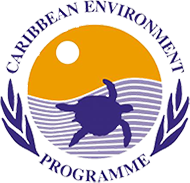- Ocean pollution from poorly managed sanitation is a global health and environmental issue with massive downstream consequences for coastal communities and marine ecosystems
- New SNAPP project, “Improving human and coastal ecosystem health through better wastewater pollution management”, jumpstarts a multi-disciplinary collaboration between sanitation and conservation sectors to address pollution from untreated or inadequately treated wastewater, especially on coral reefs
- Collaboration brings together experts from 22 organizations including WCS, The Nature Conservancy, University of Queensland, University of Sydney, & The Pew Charitable Trusts
- Group is one of the first collaborations from the newly formed Ocean Sewage Alliance, launching June 8th on World Oceans Day
- Visit www.SNAPPartnership.net for more background

New York, NY (May 6, 2021) – A new multi-sector collaboration involving 22 organizations is being launched to address a pervasive global problem - marine pollution from sewage and wastewater. Kicking off this month, the new Science for People Partnership (SNAPP) project will deliver a toolkit of guidelines and best practices for sanitation and marine conservation practitioners and local communities looking to curb water pollution and boost public and ecosystem health outcomes.
Pollution from inadequately managed sanitation and untreated/partially treated wastewater seeps into the ocean every day all around the world, smothering underwater ecosystems like coral reefs and degrading coastal fisheries and water sources that communities rely on. Tackling this issue on a global scale has long been difficult, as sanitation knowledge levels and available public and private infrastructure (like wastewater treatment facilities) differ widely from community to community.
“We have a growing health and environmental crisis where 4.5 billion people live without safe sanitation and trillions of gallons of untreated human waste are dumped or seep into coastal waters every year,” said Dr. Stephanie Wear, Senior Scientist at TNC. “This waste is polluting marine environments on a global scale and amplifying additional health, food security and economic impacts among the world’s most vulnerable communities.”
“There has been slow progress towards achieving Sustainable Development Goal 6 for sanitation. It has been widely underestimated how complex sanitation challenges are to solve. Cross-discipline collaborations, like SNAPP, are the best way forward, as they bring together the brightest minds and a lot of motivation from different sectors,” added Dr. Jacqueline Thomas, Environment Engineer at the University of Sydney.
The team’s diverse slate of experts come from across the sanitation and conservation sectors. Participants will work together over the next two years to develop evidence-based guidance on wastewater pollution for coastal ecosystems that can be used by governments, NGOs, private-sector stakeholders, and donors to compile, design, and implement wastewater management strategies that can meet public and ecosystem health goals. The resulting suite of tools, guidelines, and best practices will help stakeholders work together to safeguard sensitive coastal ecosystems like coral reefs, and protect the health of the coastal communities who depend on them.
“This collaboration is very exciting because wastewater pollution is a problem we can actually solve at the local level. There are dozens of examples from around the world of coastal ecosystems rebounding when wastewater pollution is reduced,” said Dr. Amelia Wenger, the WCS conservation scientist leading the SNAPP group. “There is also accumulating evidence that wastewater pollution makes coral reefs more vulnerable to the impacts of climate change, which means that any progress we can make in managing wastewater pollution will directly benefit coral reefs and the communities who depend on them.”
A recent global mapping effort led by the WCS revealed that water quality is one of the top threats facing coral reef ecosystems. “Identifying threats is only the first step. Mitigating threats and improving outcomes for people and biodiversity requires the hard work of co-developing practical guidance with stakeholders that will actually lead to changes on the ground. This collaboration will do just that, and has the potential to be a game changer for improving the health of marine ecosystems and coastal communities,” says Dr Emily Darling, WCS Director of Coral Reef Conservation.

SNAPP is a partnership between The Nature Conservancy and Wildlife Conservation Society. It is a scientific collaboration that is developing solutions to some of the world’s most significant conservation challenges that impact both people and nature. Since its inception in 2013, SNAPP has launched 45 working group projects, which to date have engaged more than 1200 scientists and conservationists from over 550 institutions and 66 countries. These teams have produced 125 peer reviewed scientific publications, 8 online tools, and have helped raise more than $21 million to follow-up on the outcome of SNAPP groups and to take those outcomes into practice.
About the Science for Nature and People Partnership
Founded in 2013, the Science for Nature and People Partnership (SNAPP) is the world’s premier innovation engine of conservation science and sustainable development policy, partnering with public, non-profit and private sector organizations around the world to transform the relationship between people and nature. Backed by The Nature Conservancy (TNC) and the Wildlife Conservation Society (WCS), SNAPP funds, convenes and supports Expert Working Groups addressing challenges in four focus areas: Climate Resilience, Food and Freshwater, Ocean Sustainability and Social Innovations. SNAPP has been generously supported by Angela Nomellini and Ken Olivier, Shirley and Harry Hagey, Steve and Roberta Denning, Seth Neiman, the Gordon and Betty Moore Foundation, Ward W. and Priscilla B. Woods, blue moon fund, and the David and Lucile Packard Foundation, and others who have supported specific working group initiatives. For more information, visit http://snappartnership.net/
WCS (Wildlife Conservation Society)
MISSION: WCS saves wildlife and wild places worldwide through science, conservation action, education, and inspiring people to value nature. To achieve our mission, WCS, based at the Bronx Zoo, harnesses the power of its Global Conservation Program in nearly 60 nations and in all the world’s oceans and its five wildlife parks in New York City, visited by 4 million people annually. WCS combines its expertise in the field, zoos, and aquarium to achieve its conservation mission. Visit: newsroom.wcs.org Follow: @WCSNewsroom. For more information: 347-840-1242.






